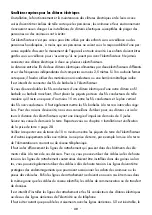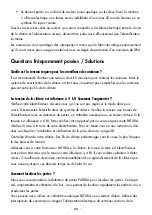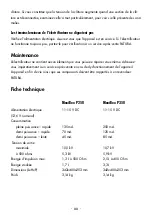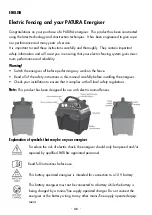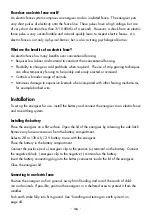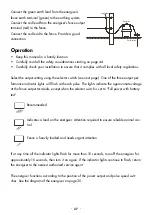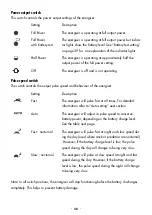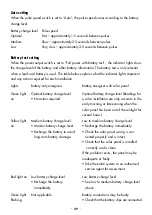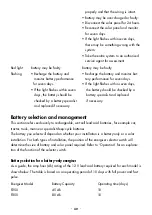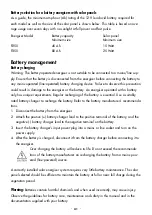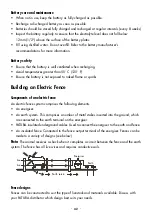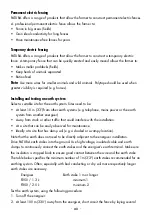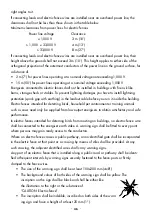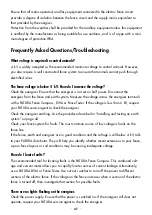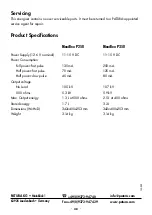
steel stakes or lengths of pipe against the fence. For best results, the fence voltage should
be lowered to 2,000 V or less. In dry or sandy conditions, it may be necessary to drive the
stakes up to 300 mm (12”) into the earth.
3. Turn the energiser back on.
4. Using a PATURA Digital Voltmeter, ensure that the fence voltage is below 2 kV.
5. Check your earth system. Insert the voltmeter’s earth probe into the ground at the full extent
of the lead, and hold the hook against the last earth stake. The tester should not read more
than 0.5 kV. Anything higher than this indicates that better earthing is required. Either
add more earth stakes or find a better ground area to drive in the earth stakes. A voltage
below 0.2 kV would be best.
Safety Considerations
Safety considerations according to European Security Standard EN 60335-2-76
Definition of special terms
Energiser – An appliance that is intended to periodically deliver voltage impulses to a fence
connected to it.
Fence – A barrier for animals or for the purpose of security, comprising one or more conduc-
tors such as metal wires, rods or rails.
Electric fence – A barrier which includes one or more electric conductors, insulated from earth,
to which electric pulses are applied by an energiser.
Fence circuit – All conductive parts or components within an energiser that are connected or
are intended to be connected, galvanically, to the output terminals.
Earth stake – Metal structure that is driven into the ground near an energiser and connected
electrically to the output earth terminal of the energiser, and that is independent of other earth-
ing arrangements.
Connecting lead – An electric conductor, used to connect the energiser to the electric fence or
the earth stake.
Electric fence – An electric fence used to contain animals within or exclude animals from a
particular area.
Pulsed conductors – Conductors which are subjected to high voltage pulses by the energiser.
- 44 -
Energiser
Energiser
earth
DVM
earth
live
live
short circuit

